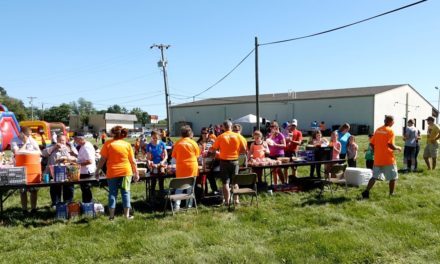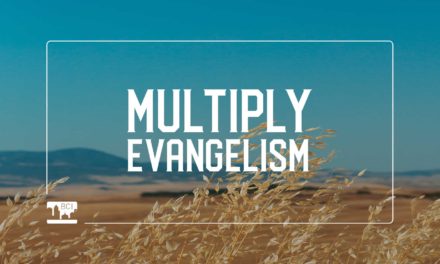The evangelism paradigms which have driven the American Christian church in general and Baptist in particular over the course of the last 100 to 150 years, have been what I call “harvest evangelism.” This has been most evident in the events and programs developed during this time frame. Revivals, Crusades, Vacation Bible School, Evangelism Explosion, etc. have all been part of the fabric of this paradigm. Each of these is designed to confront the lost with the claims of the gospel, and presumes a background which would lead to readily accepting those claims. Our church outreach strategies and even our church planting terminology of “gathering a core group” speaks to the presumption that we will be able to find people who have this worldview (Biblical understanding) as their heritage and will respond to our appeal.
We, particularly in the Midwest, no longer live in this kind of world. Although many (maybe most) people in this region might identify themselves with a religious heritage, in most cases it is just that – a religious heritage. They do not have personal experience with that heritage. We find this most identifiable as we see the general acceptance of non-Christian worldviews playing themselves out in the marketplace of ideas, exampled by the current marriage debate. Some have identified this as a post-Christian or post-church culture requiring pre-Christian strategies. The world in which we live no longer is based on a Christian worldview and the decisions being made no longer have Christ as a guiding light.
This new paradigm significantly impacts how we do evangelism. As such, it is helpful to see this as a process of helping people discover God, the truths of the Bible, and the Savior. In other words there is a need to “disciple people to salvation.” Increasingly we will need to understand that the people with whom we are sharing the Good News do not have a clue about anything we might want to share with them nor do any of the people with whom they currently relate have any understanding. Therefore, it is important for us to do three things. First, we need to pray that the Holy Spirit will lead us to those with whom He is already at work (persons of peace). Second, we need to think of evangelism as discipleship, not sharing the Good News for a decision, but literally starting at the beginning with creation and helping them move through the Scriptures to salvation and beyond. In doing this we allow the Scriptures and the Holy Spirit to speak, as opposed to us sharing our interpretation or giving instructions. Third, as we share the Scriptures, the person should be invited to share this information (even before He is saved) with those with whom he or she relates. This way when he, she, and/or they come to faith they will be doing it in community and not in isolation.
Discipleship is more than sharing cognitive learning. It also is more than “relational evangelism” which relates to them until they are “saved.” It is building a relationship, starting where the person is, then helping that person (even while he or she is in the process) share what he or she is learning with those around him or her. This is done in order to reinforce what he or she is learning, but also to build a community which will be there as support going forward. Discipleship begins at “hello” and continues for a lifetime. It is life on life growing in Christ.







